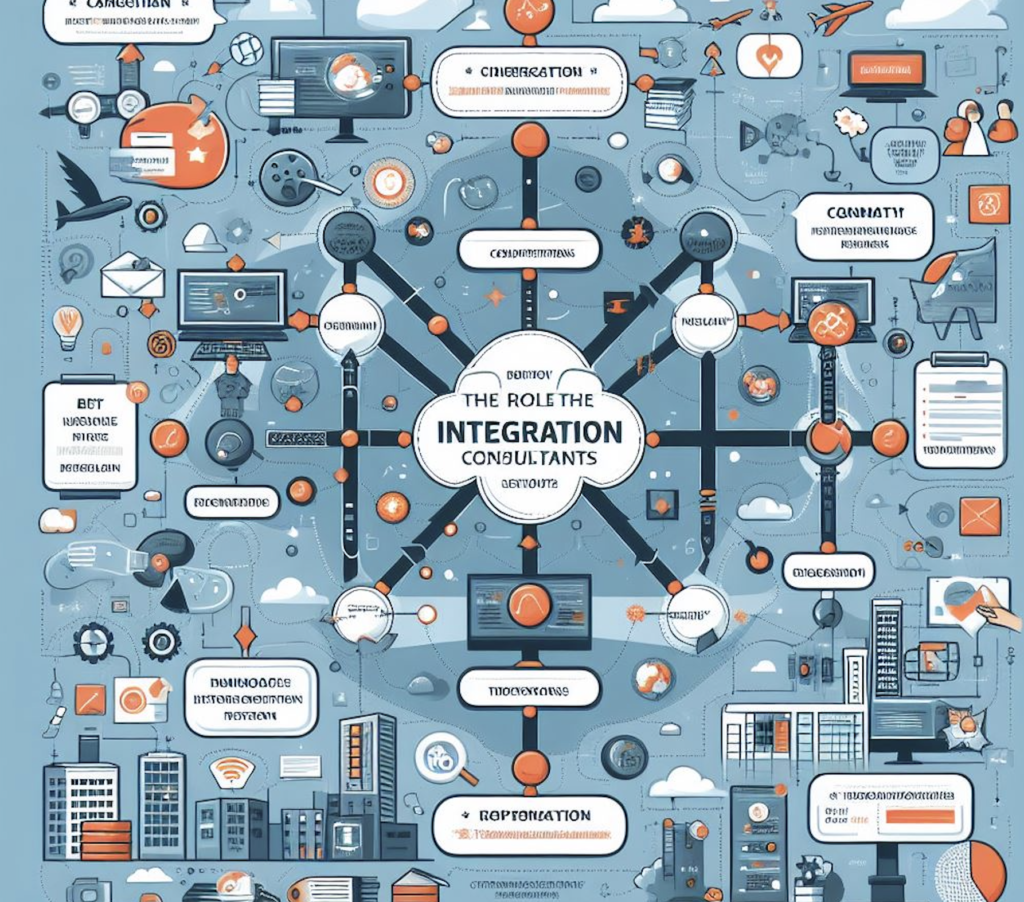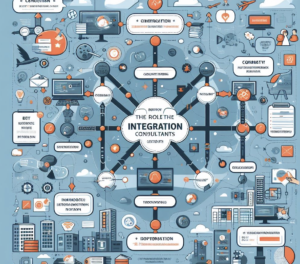
Unravelling the Puzzle: The Vital Role of Integration Consultants in Guiding and Empowering Customers
In today’s fast-paced digital landscape, businesses face a myriad of challenges when it comes to integrating new technologies seamlessly into their existing frameworks. From selecting the right software solutions to ensuring smooth implementation, the journey towards digital transformation can often feel like navigating a complex labyrinth.
Enter integration consultants, the unsung heroes behind the scenes, who play a pivotal role in simplifying this intricate process and empowering businesses to make informed decisions. In this article, we delve into the indispensable role of integration consultants and how they guide and support customers every step of the way.
Understanding the Maze: Navigating Complex Technological Landscapes
In an era where technological advancements occur at breakneck speed, businesses are inundated with a plethora of options when it comes to software solutions. However, the abundance of choices can often lead to confusion and indecision. Integration consultants act as trusted advisors, helping businesses cut through the noise and identify solutions that align with their unique needs and objectives.
For further reading on the importance of navigating complex technological landscapes, check out this insightful piece by [TechInsights](https://www.techinsights.com/blog).
Tailored Solutions for Every Business Need
One size does not fit all when it comes to software integration. Each business has its own set of requirements, workflows, and challenges. Integration consultants possess the expertise to assess these intricacies and recommend tailored solutions that optimize efficiency and productivity.
To learn more about how tailored solutions drive business success, explore this article from [Forbes](https://www.forbes.com/custom-tailored-solutions).
Seamless Implementation: Turning Vision into Reality
Selecting the right software is just the first step; seamless implementation is equally crucial for the success of any integration project. Integration consultants collaborate closely with businesses to develop comprehensive implementation strategies, ensuring a smooth transition with minimal disruption to operations.
For insights on achieving seamless implementation, dive into this comprehensive guide by [IntegrationCorp](https://www.integrationcorp.com/seamless-implementation-guide).
Troubleshooting and Support: Navigating Challenges with Expertise
Even the most meticulously planned integration projects may encounter unforeseen challenges along the way. Integration consultants serve as troubleshooters, leveraging their technical expertise to address issues promptly and minimize downtime. Whether it’s resolving compatibility issues or optimizing performance, their support is invaluable in keeping integration projects on track.
To explore best practices for troubleshooting and support, refer to this informative resource from [TechSupportHub](https://www.techsupporthub.com/troubleshooting-best-practices).
Empowering Businesses for the Future
Beyond just facilitating the integration process, integration consultants empower businesses with the knowledge and skills to navigate future technological advancements independently. Through training sessions and ongoing support, they equip teams with the tools they need to adapt to evolving landscapes and harness the full potential of their integrated systems.
For insights on future-proofing your business, read this article on [BusinessFutureTrends](https://www.businessfuturetrends.com/future-proofing-strategies).
Conclusion: A Guiding Light in the Digital Journey
In an increasingly interconnected world, the role of integration consultants cannot be overstated. From guiding businesses through the maze of software options to ensuring seamless implementation and providing ongoing support, they are instrumental in driving successful integration projects. By partnering with integration consultants, businesses can embark on their digital transformation journey with confidence, knowing that they have a dedicated team of experts by their side every step of the way.
Integration consultants play a crucial role in helping enterprises navigate the vast landscape of tools and technologies available for their specific needs. Here are some additional details on how they assist in choosing the right tools and technologies:
1. Comprehensive Needs Assessment: Integration consultants start by conducting a thorough assessment of the enterprise’s requirements, workflows, and existing infrastructure. They collaborate closely with stakeholders to understand their goals, pain points, and desired outcomes. By gaining a deep understanding of the business’s unique needs, consultants can tailor their recommendations to align with strategic objectives.
2. Market Research and Evaluation: Armed with insights from the needs assessment, integration consultants conduct extensive market research to identify potential tools and technologies that meet the enterprise’s criteria. They evaluate various solutions based on factors such as functionality, scalability, compatibility, security, and cost-effectiveness. This rigorous evaluation ensures that the recommended tools are well-suited to address the enterprise’s specific challenges and objectives.
3. Vendor Selection and Negotiation: Integration consultants assist enterprises in selecting reputable vendors who offer the most suitable solutions for their needs. They leverage their industry expertise and networks to identify trusted vendors with a track record of delivering high-quality products and services. Additionally, consultants may negotiate pricing, licensing agreements, and service level agreements on behalf of the enterprise to ensure favorable terms and maximize value.
4. Proof of Concept (PoC) Development: In some cases, integration consultants may recommend conducting a proof of concept (PoC) to validate the feasibility and effectiveness of a particular tool or technology in a real-world environment. They collaborate with vendors to develop PoC prototypes and test them within the enterprise’s infrastructure. This hands-on experimentation allows stakeholders to gain firsthand experience with the proposed solution and make informed decisions based on tangible results.
5. Customization and Integration Planning: Once the right tools and technologies have been selected, integration consultants develop customized implementation plans tailored to the enterprise’s unique requirements. They define integration workflows, data mapping strategies, and migration pathways to ensure seamless integration with existing systems and processes. Consultants work closely with internal IT teams and external vendors to coordinate implementation activities and mitigate potential risks.
6. Training and Knowledge Transfer: As part of the implementation process, integration consultants provide comprehensive training sessions to empower enterprise teams with the knowledge and skills needed to effectively utilize the new tools and technologies. They develop training materials, conduct workshops, and offer ongoing support to ensure a smooth transition and maximize user adoption. By investing in training and knowledge transfer, consultants enable enterprises to leverage the full capabilities of their integrated systems and drive business value.
In summary, integration consultants play a multifaceted role in helping enterprises choose the right tools and technologies for their digital transformation initiatives. From conducting needs assessments and market research to facilitating vendor selection and implementation planning, consultants provide invaluable expertise and guidance every step of the way. By partnering with integration consultants, enterprises can navigate the complex landscape of technology choices with confidence and achieve their strategic objectives effectively.




